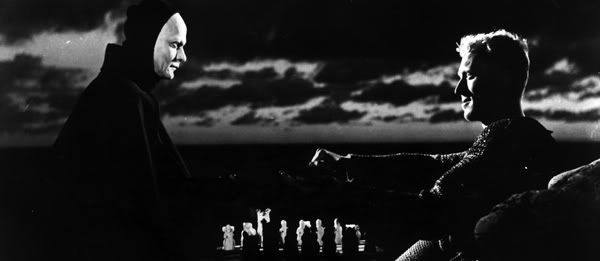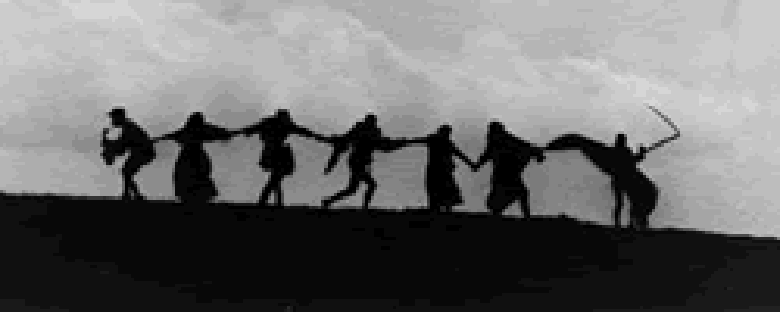Anyway, the first movie posted on Hulu by the Criterion Collection is Ingmar Bergman's The Seventh Seal (1958). The film opens on a knight laying on a beach. He and his squire have just returned from the Crusades, and they are making their way back to his castle. During their journey, they find that their homeland is much changed; the plague has descended, claiming the lives of many of the people they knew and some villages have been deserted. At the start of the film, before they leave the beach, the knight meets Death, and challenges him to a game of chess. A game in which his soul is at stake. This chess game continues throughout the film as Death follows the knight on his journey back to his castle.
One of the things that is really great about this film is the fact that it doesn't let you just sit back and watch it. The stark imagery is unlike anything else I've ever seen, and it's frank treatment of themes like good, evil, and the existence of God surprise us into paying attention. It's a surprise in that no modern film (at least none I can think of) has the audacity to treat such subject matter so directly. One of my favorite scenes, pictured below, exemplifies both Bergman's use of imagery and boldness. In this scene, the knight visits a church and goes to confession. He pours his heart out to the hooded figure on the other side of the bars, whose face he cannot see. During his confession, the knight questions the nature, and the very existence, of God. During the scene, it is revealed to the viewer that the man listening to the knight's confession is actually Death; there is no God there, nor anyone representing Him, and we receive no answers.
Another strong image is that of the knight and Death playing chess.
This is probably the most iconic image from the film. It has often been imitated and parodied in the years since this film's release, but it perseveres.
The acting is superb as well. The actor playing the knight (Max von Sydow) gives a particularly strong performance, taking us on the knight's journey of meeting Death, questioning life and faith, and then returning to faith through interactions people he befriends on his way back to his castle. As the squire, Gunnar Bjornstrand adds a bit of humor, albeit a dark and sardonic kind of humor, to the otherwise straightforward and uncompromising tone of the film.



No comments:
Post a Comment